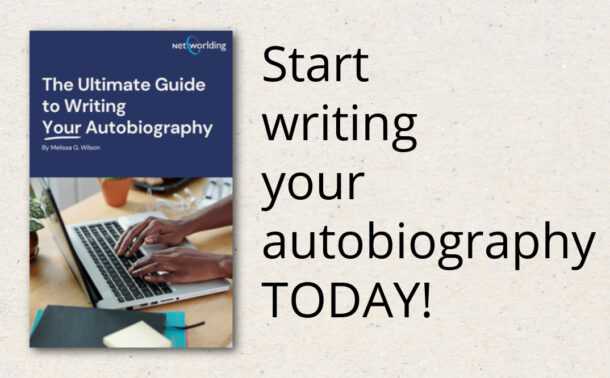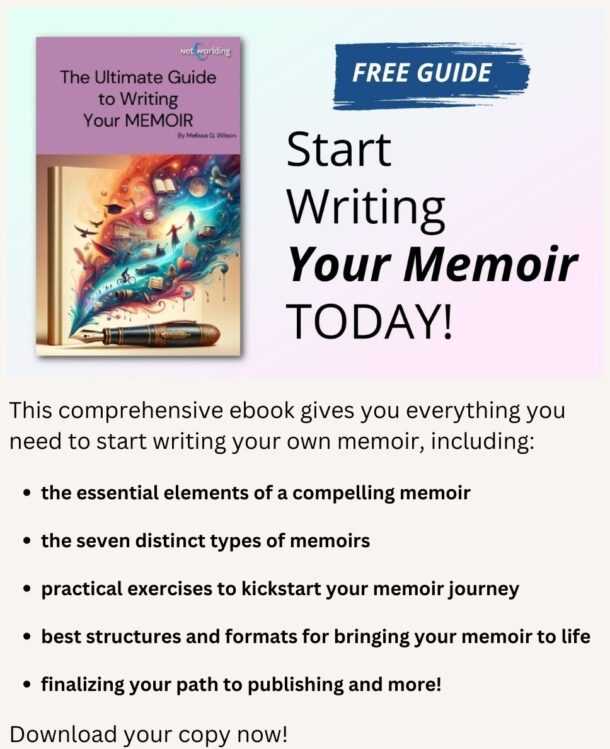How to Write An Autobiography Conclusion

Writing an autobiography can seem pretty easy… that is until you reach the conclusion.
Because this is the story of your life, it can be hard to let this work go. It’s almost like you’re killing yourself by creating a conclusion to your story.
Knowing how to write an autobiography conclusion can help you be able to bring your story to a natural close, provide hope for the future, and let your life make the impact you want it to make.
Here’s how you can create a natural conclusion that will encourage you as much as it encourages your readers.
How Do You Want To Represent Your Life?
There are two basic ways that an autobiography can be concluded:
- You can show that your life is unfinished and you’re always evolving into something new.
- You can show that you’ve reached a place where you feel like your work is finished and that life is stable.
Which type of conclusion you choose should be based on the message you’re trying to offer readers about your life.
For example, if you came out of hardship and have created a meaningful life that helps others, then stability is a good thing to use as a conclusion.
If, on the other hand, you’re writing about the lessons you’ve learned in life, then those lessons never really stop coming. Being pliable would be a good conclusion in that instance.
Are There Loose Ends To Tie Up?
An autobiography can include numerous themes and ideas. Not every story offered has a conclusion within the body text of your story. The conclusion then becomes the best place for you to tie up any loose ends that still remain.
As you are tying up these loose ends, it is still completely appropriate to keep asking questions. Resolving a lingering issue in life often creates new issues that must be addressed. Think about some of the questions your readers might have after reading your autobiography and then try to answer them within the pages of your conclusion.
What Is It That You Believe?
Many autobiographies often wrap up with an overview of personal philosophies and faith. Convictions and lessons learned become friendly advice to the reader. Summarizing these beliefs can be a good way to wrap up an autobiography, but so can a willingness to question what your core ideals happen to be.
The fact is that we should always be questioning ourselves in thought, word, and deed. Every new day we are offered becomes an opportunity to be a little bit better than the day before.
You don’t need to state your deepest beliefs in order to get this type of message across to a reader. Sometimes just putting the questions you ask yourself into print can take the reader on a similar journey to your own.
How Are You Different?
Your life is unique. You created an autobiography for that very reason. How can you distinguish yourself from other people who have had similar life experiences or lessons they have learned?
By seizing on what makes you truly unique, you’ll create a natural conclusion that will have readers focusing on your ideology, strengths, and accomplishments more than anything else.
This doesn’t mean you should avoid mentioning your weaknesses. Weakness must be acknowledged before it can be overcome. By making sure you recognize who you are as a whole person, you’ll be able to inspire others to do the same through the words of your autobiography conclusion.
How Can Your Readers Take Action?
If you’ve got a reader who has managed to make it to the conclusion of your autobiography, then it is pretty safe to assume that they have thinking patterns that are similar to your own. This gives you the opportunity to use your conclusion as an opportunity for a call to action.
There are numerous ways that a reader can be inspired to do something. Sometimes this means getting involved with a charitable cause. It might mean inspiring the reader to chase their own dreams, even if they’d given up on them years before.
Think about what the message is that you’re trying to convey and then encourage the reader to take action in their own lives based on what you’ve been discussing.
Although knowing how to write an autobiography conclusion might feel like the closing chapter of life, it really is the opposite. The conclusion is the first chapter toward something that is brand new. Think about these various options, choose the one that is right for you, and then let your life teach others an important lesson.


